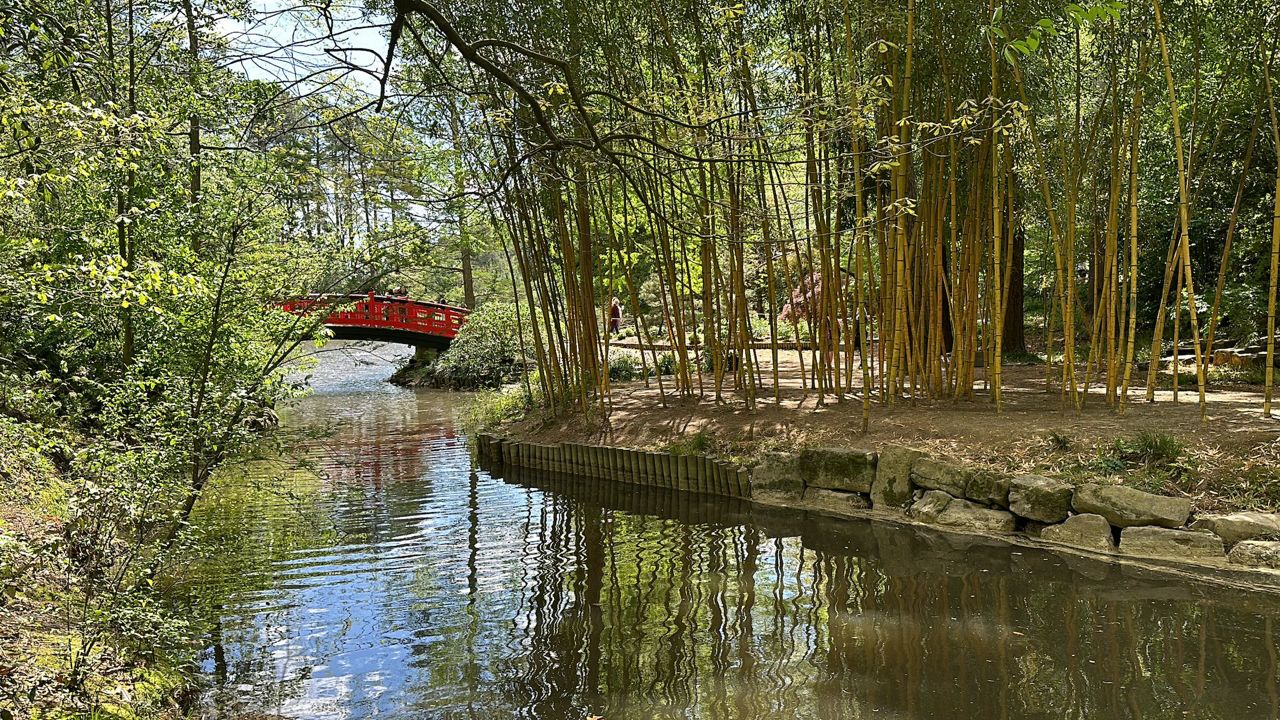DURHAM, N.C. — The gardens at Duke University are in full bloom this time of year, and their beauty draws visitors from all over the world, including Kishida Yuko, wife of Japan's prime minister.
Friday morning, North Carolina's first lady Kristin Cooper and Kishida met for a traditional Japanese tea ceremony at the garden on Duke's campus.
The Culberson Asiatic Arboretum at Duke is an intricate and calming place to enjoy nature’s beautiful sights and sounds. The staff that create and maintain it put a lot of effort into their work.
“It’s validated somewhat when you get such a high-profile individual as the wife of the prime minister of Japan coming,” Paul Jones said.

Jones has been working there for 40 years and is the founding curator of the Asiatic Arboretum.
“It's really hard for me,” Jones said. “And I think it's hard for perhaps … non-Japanese gardeners in general to really understand all the little nuances that go into what makes a Japanese garden so special.”
He said it was an honor to share their hard work with someone outside of the typical visitors they receive. Director of learning for Sarah P. Duke Gardens, Kavanah Anderson, said she wants people to find a sense of connection in this garden. And she believes Kishida found just that.
“Everyone really enjoyed it,” Anderson said. “The tea ceremony is an opportunity to really focus on the present moment and practice mindfulness, use your senses. It's a very multi-sensory experience. And so I would say everyone came away looking refreshed and with a smile on their face.”
Jones and horticulturist Michelle Rawlins put a lot of hard work into prepping the gardens.
“We had a little bit of a storm roll through … with that high winds,” Rawlins said. “So there's a lot of little sticks to pick up. And with the rain, the limbs seem to come down a little bit. So I pruned a little things just so we don't get rained on walking around giving the tour. But that's all a part of the job, right?”
Although more than 600,000 visitors come through the gardens every year, Jones says there’s a little extra care taken with high-profile visitors.
“Things are never ready,” Jones said. “They can never be good enough. You know, we have had such a busy spring. The impact of the visitors, so many visitors, so many feet, so much enjoyment of the garden. Everywhere is impacted lovingly. But you know, to some extent there's a negative impact. And so trying to overcome that in the last minutes, the last days, is almost an impossibility. But I think the garden looked really well.”
Jones and Rawlins got many of their ideas for the Japanese garden from Durham’s sister city, Toyama, Japan. Duke hosts multiple traditional Japanese tea gatherings for the public in its pavilion throughout the year.



